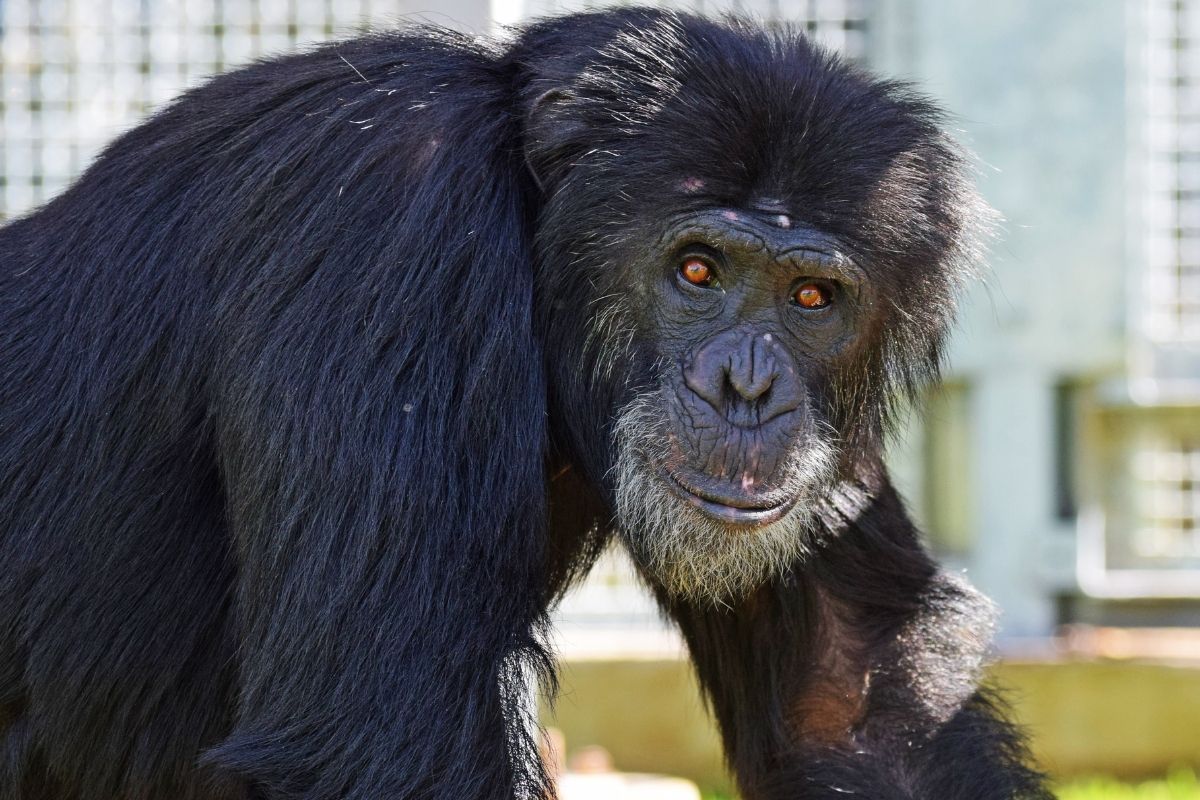By Nicole Rivard
South Central Texas is prone to outbreaks of severe weather throughout the year—hurricanes, floods, tornadoes, hail and lightning. And because of the climate crisis, prolonged freeze events have also become a threat to the sanctuary, its residents and staff.
Currently, an arctic air mass is approaching South Central Texas.
That’s why Primarily Primates’ executive director Krystal Mathis has given the sanctuary’s weather protocols an overhaul to mitigate the threats of freezing temperatures.
“All staff members have attended a winterization training session by Tracey Jackson, maintenance manager and a member of the animal care management team. They’ve been trained or re-trained on protocols and equipment specific to their individual sections,” Mathis said. “Another significant change is our new emergency preparedness building for storing winter items, but more importantly it is set up to accommodate animals who need to be evacuated from their enclosures because of inclement weather,” Mathis said.
Animals likely to be evacuated in case of a freeze event are those who refuse to be secured in their warm houses as well as elderly or compromised animals. Care staff also provides additional heat to animals at varying temperatures according to what is common for species’ natural history. For example, callitrichids – a group of very small new world monkeys – are most comfortable in rainforest-type environments. Primarily Primates makes sure their indoor enclosures stay at 60 degrees. Snow macaques, a larger species of monkey from Asia, are more comfortable at colder temperatures.
Donations generous members of the community made last year helped Primarily Primates upgrade its existing heating options so a weather event like winter storm Uri never impacts the sanctuary so gravely. While four industrial generators are now onsite, they are unable to be used right now because supply-chain issues slowed their arrival considerably. However, in the interest of being prepared, PPI also purchased smaller generators and placed them throughout the sanctuary. Even if PPI loses power completely, care staff is confident they will be able to keep all animals warm.
Staff is also adding a gasoline storage tank onsite to refill generators in case of a gas shortage or the inability to leave the property to get fuel. In addition, propane storage tanks are on site so that small propane heaters can be refilled without leaving the sanctuary as well.
Mathis pointed out that care staff had to make some social group changes because animals who are friendly with one another in spring aren’t always keen to share their bedrooms in the winter.
“We will be keeping a close eye on group dynamics for the rest of winter,” Mathis said.
To help animals tolerate colder weather, care staff modifies their diets.
“More protein, carbs and food in general helps animals stay warm,” Mathis explained. “So, we provide warm oatmeal to the elderly guys who don’t have teeth and peanut butter sandwiches or other items filled with lots of carbs to the other primates. Everyone loves that part of winter!”
If you would like to help the sanctuary weather future storms, we could use monetary donations, fleece blankets, water (the sanctuary gets water from a well, so they will have to shut off the water when temperatures fall below freezing), gasoline for generators, propane tanks for space heaters and sipper water bottles (like the type seen in hamster cages but slightly larger.)

